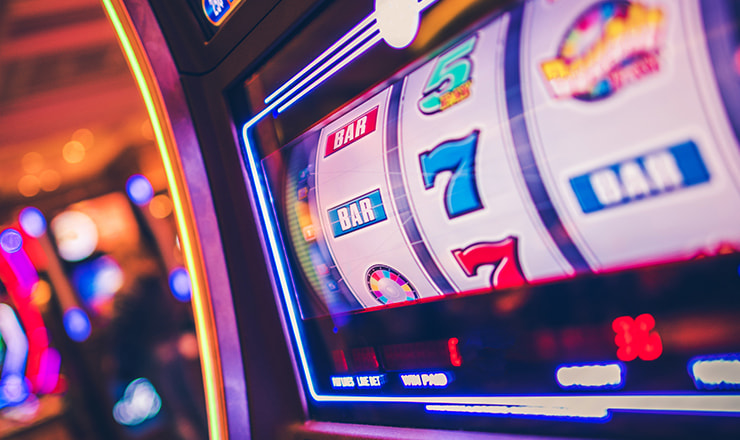What is Return to Player (RTP): A Comprehensive Guide
We’re diving into the intriguing world of return to player. Whether you’re a seasoned player or just starting out, understanding RTP is key to maximising your experience. In this guide, we’ll answer the question what is RTP? We’ll explore how it’s calculated, and its significance across different games.
What is RTP?
RTP, or return to player, is a crucial concept in the world of gambling. Simply put, it represents the percentage of wagered money that a casino game could pay back to players over time.
For example, if a slot title has an RTP of 95%, it means that, on average, for every £100 wagered, players can expect to receive £95 back in winnings. Keep in mind though that this number is not a guarantee of a payout.
However, it does provide players with valuable insight into the long-term profitability of a game and helps make informed decisions about which games to play.
Role of RTP in Determining Winnings
The RTP value is calculated based on millions of spins or rounds played, meaning that individual gaming sessions may deviate significantly from the expected return. That’s why it’s important to approach gambling with the understanding that outcomes are determined by random chance and that short-term results may vary widely.
How is it Calculated?
The calculation of RTP involves a straightforward formula: total amount returned to players divided by the total amount wagered by players, multiplied by 100. Factors such as game mechanics, features, and odds influence the RTP calculation.
A higher RTP indicates better odds for players to win in the long run. On the flip side, casinos have something called the “house edge.” This is the advantage the casino has over players. When the RTP is lower, the house edge is higher, meaning the casino keeps more of the money bet by players over time.
If the RTP of a game is 90%, then the portion the casino keeps (house edge) is 100% – 90% = 10%. So, for every £100 bet, the casino keeps £10 (10%).
Factors influencing RTP calculation
Several factors can influence RTP calculation. Game volatility, or variance, plays a significant role, with high volatility games offering higher RTPs, so the potential for larger payouts, but less frequent wins.
Additionally, bonus features, payline structures, and betting strategies can impact a game’s overall RTP and the frequency and size of payouts. Bonus features in slot games such as free spins or multipliers can significantly influence the RTP by providing additional opportunities to win or increase winnings.
Third Party Testing
Third-party testing agencies play a vital role in ensuring the accuracy and reliability of these RTP calculations. The agencies are independent organisations that specialise in evaluating the fairness and integrity of casino games, including their payout percentages.
Some well-established companies to look out for are eCOGRA, GLI and iTech Labs. Here is an overview of what their role entails:
- Certification: certifying the RTP values provided by casinos. You can usually locate the certificate for yourself on an online casino homepage. It’s often displayed in the footer of the website or under the “About Us” section.
- Testing: These agencies conduct rigorous testing of casino games to ensure that they operate fairly and transparently. They examine the game algorithms, random number generators (RNGs), and payout structures to confirm that they are free from bias or manipulation.
- Auditing: Third-party companies periodically audit casino operators to verify that they are adhering to the claimed RTP values. They review transaction records, game logs, and other relevant data to ensure compliance.
- Regulatory Compliance: Many jurisdictions, including the UK, require casino operators to submit their games for testing and certification as a condition of obtaining and maintaining their gambling licences.
Differences Across Casino Games
RTP can vary significantly across different casino games. In slots, RTP is determined by the game’s design, including its volatility and features like bonus rounds. Table games, on the other hand, have fixed odds, leading to a more straightforward RTP calculation.
The best casinos in the UK will often display the RTP of each game on their site, making it easier for you to decide what to play. Let’s take a look at the RTPs of different games below.
RTP in Slots
In slots, RTP typically refers to the percentage of total bets that the game is programmed to return to players over its lifespan. This percentage is determined by the game’s design and cannot be altered during gameplay.
Slots generally have a lower RTP compared to some other casino games like blackjack and video poker. While there are exceptions with some slots offering relatively high RTPs, the average RTP for slots tends to be lower due to the nature of their design and gameplay.
Take a look below for the highest RTP slots UK players can play:
| Mega Joker by NetEnt | 99% |
| Jackpot 6000 by NetEnt | 98.86% |
| Blood Suckers by NetEnt | 98% |
| 1429 Uncharted Seas | 98.6% |
RTP in Table Games
In blackjack, the RTP is typically quite high, often exceeding 99%. This means that, on average, players can expect to get back 99% or more of their total bets over the long run. However, achieving this RTP requires employing basic strategy and making optimal decisions based on the cards dealt.
In roulette, the RTP varies depending on the type of bet and type of game. For example, in European roulette, which has a single zero, the RTP is around 97.3%. In American roulette, which has both a single and double zero, the RTP is slightly lower, around 94.74%.
Understanding RTP’s Practical Application
Knowing the RTP of a game can inform your gameplay decisions. While high RTP games offer better long-term prospects, they may have lower volatility, resulting in smaller, but more frequent wins. Think of them like the slow and steady tortoise in the race.
Conversely, games with lower RTPs are like the hare in the race. They may have higher volatility and the potential for larger payouts. This means you might hit a dry spell for a while, but when you do win, it could be a pretty sweet jackpot.
Knowing about RTP lets you choose the game that fits your style. If you’re in it for the long haul and prefer steady wins, go for the high RTP games. But if you’re feeling lucky and want that adrenaline rush, lower RTP games might be more your speed.
Strategies for Leveraging RTP Knowledge
So, how do you use this knowledge to your advantage when it comes to playing online casino games? Here is a list of our top strategies:
- Seek out high RTP games for consistent, long-term returns. Look for titles known for their favourable odds and generous payouts over time.
- Do the research: Take the time to research and compare the RTPs of different games. Many online casinos provide this information upfront, making it easy for you to make informed decisions.
- Manage your bankroll wisely, especially when playing lower RTP games with higher volatility.
- Stay open to exploring various games and features to keep your gaming experience exciting and diversified.
Conclusion: Mastering RTP for Smarter Casino Gameplay
RTP is a fundamental concept that every casino enthusiast should grasp. By understanding what RTP is, how it’s calculated, and its significance across different games, you’ll be equipped to make informed decisions.
Whether you’re spinning the reels of a slot or trying your luck at the tables, RTP knowledge empowers you to play smarter and maximise your enjoyment. So, next time you step into the casino, remember to keep an eye on RTP—it could make all the difference!
Frequently Asked Questions
We know this topic is quite complex, so you may still have some lingering questions about RTP. If so, check out our FAQ section below.
 Written by:
Written by:
